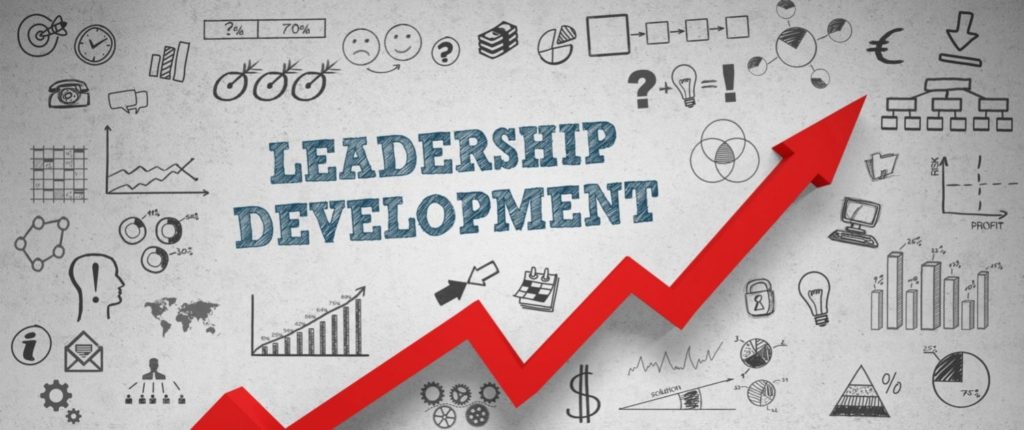Education & Career Trends: August 5
Curated by the Knowledge Team of ICS Career GPS

- Excerpts are taken from an article published on psychologytoday.com.
Leadership is not a title; it’s a calling. But it is far from easy. You don’t lead people to do something as much as you motivate them to be someone—the best version of themselves.
It requires the skills to unearth and develop in people their essential competencies of skills, knowledge, and attitude.
As a leader, you teach them what needs to be done, how to do it, why it needs to be accomplished, and their critical role in the entire project. You motivate them to do their best job and to look for solutions to problems people don’t yet recognise. Leadership is part science, part art, and there are people (including this author) who have studied this craft with the hope of improving its practice.
Leadership development is not innate.
Leadership development is a powerful and transformative process that moulds individuals into influential leaders who can drive positive change in their organisations and communities. Crucial elements unlock the secrets of effective leadership development and shed light on the strategies that foster the growth of exceptional leaders.
They are at the cornerstone of any effective leadership development programme.
1. Emphasising Self-Awareness
- If you don’t recognise your strengths and challenges, how can you help people with theirs? One of the fundamental pillars of effective leadership development is self-awareness.
- Leaders who understand their strengths, weaknesses, values, and motivations are equipped to lead authentically and empathetically.
- By recognising their blind spots, leaders can make well-informed decisions and foster a supportive work environment.
- Unless you know how to leverage the positive, work on the negative, and collaborate with those who are the same as and different from you, then the assessment is of little value.
2. Cultivating Emotional Intelligence
- Good leaders can teach you the skills you need to know.
- That is where most people stop, when, in reality, it is where leadership begins.
- Optimising emotional intelligence equips leaders to recognise and manage their emotions and empathise with others, fostering strong interpersonal relationships.
- Leaders who flex their emotional intelligence and those of their team members can inspire trust and create a culture of collaboration and innovation.
3. Encouraging Lifelong Learning
- Despite all of their successes, high achievers are continuously learning.
- Effective leadership instils a growth mindset in individuals and teaches them different methods of learning.
- While the classroom is an obvious choice, books, lectures, YouTube, LinkedIn Learning, and podcasts are all valuable options for growth.
- Learning allowances, mentors, and networking opportunities are all ideas to help inculcate lifelong learning into the culture of an organisation.
- Additionally, facilitating the exchange of knowledge and experiences among leaders through workshops and seminars can enrich perspectives and broaden skill sets.
4. Providing Mentorship and Coaching
- The research is clear: Those who are mentored outearn and outperform those who are not.
- They get promoted more often and have less burnout.
- While mentorship provides strategic vision, coaching offers nuances that can make pivotal differences.
- It is why every Olympic athlete has a coach, as they know small changes can mean the difference between being on and off the podium.
- Mentorship and coaching play integral roles in nurturing leadership potential.
- Experienced mentors can offer invaluable insights and point out common pitfalls.
- Coaches, on the other hand, provide bespoke support, assisting leaders in goal setting, accountability, overcoming challenges, and honing their leadership style.
- Leaders should have mentors, and coaches should offer the same benefit to their rising leaders.
5. Embracing Diversity and Inclusion
- To maximise innovation, diversity of thought, which is based on diversity of upbringing and experience, needs to be woven into leadership.
- Helping see problems and solutions from different angles will put you ahead of the competition while building a cohesive and collaborative team.
- Effective leadership development is a multipronged process that involves self-awareness, emotional intelligence, continuous learning, mentorship, and inclusivity.
These elements unleash the full potential of aspiring leaders to lead effectively with purpose, vision, and compassion.
Nurturing exceptional leaders is about empowering individuals and creating a brighter future for organisations and society. Integrating the above elements into leadership development can build a generation of leaders who inspire, empower, and positively impact the world.
…
Have you checked out yesterday’s blog yet
8 Job Search Mistakes That Are Easy to Overlook
(Disclaimer: The opinions expressed in the article mentioned above are those of the author(s). They do not purport to reflect the opinions or views of ICS Career GPS or its staff.)
Like this post? For more such helpful articles, click on the button below and subscribe FREE to our blog.




One Reply to “The Secrets of Effective Leadership Development”